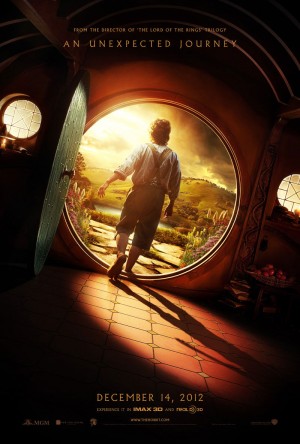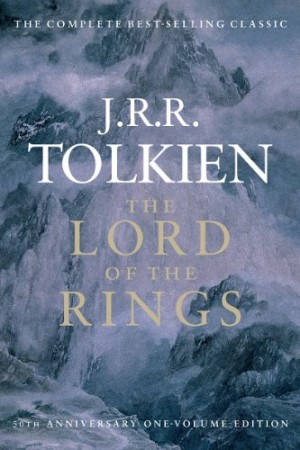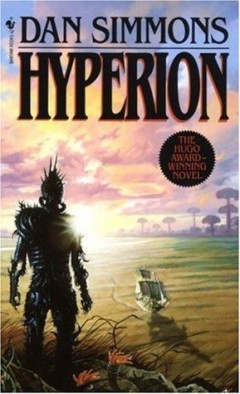

A director returns, after several years and more than one lackluster attempt with other kinds of movies, to a genre he redefined. He had some little known but modestly successful works before his big breakthrough, but since then he just has not been the same man who gave us such an epic, fantastic spectacle full of industry-defining special effects, wonderful music, thrilling action, and, above all, a new world to explore with characters we wanted to accompany. Special effects have come a ways since his magnum opus was crafted, and if used correctly they have the potential to enhance the visual experience even more than before. What could possibly go wrong?
Peter Jackson’s latest project is out in theaters. I wish I could say it was called The Hobbit, but honesty compels me to report that the name is actually The Hobbit: An Unexpected Journey. The reason for the alteration is that The Hobbit will be brought to us not as a short adventure thrill ride, in keeping with the pace and feel of the source material, but rather will be extended into a movie trilogy that, when finished, will outlast a typical BBC miniseries. The motive behind this sort of reverse editing, whereby Tolkien’s notes were raided for things to stuff into the story and plump it up, is Mr. Jackson’s belief that we are stupid enough to triple his box office take if he triples the number of movies to be made from the story. He is probably right. I know I bought my ticket.
Even with his triumphs Jackson had a tendency to let a project get bloated. The best example, I believe, is the sudden barrage of scenes that hit us in The Two Towers right as we should be, could be, would be cruising toward the third act if a drawn-out and apocryphal love story were not fed to us by way of flashbacks, many in a languid, dreamy style that makes one wonder if one has just witnessed something shot wholly in slow motion. When Jackson had over 1,000 pages of material to convert to nine hours of footage this was an annoyance. With The Hobbit, he has fewer than 300 pages to make into nine hours and the filler has now surpassed the beef in the hotdog.
[continue reading…]
Help Promote Prometheus Unbound by Sharing this Post

In this episode of the Libertarian Tradition podcast series, part of the Mises Institute’s online media library, Jeff Riggenbach makes the case that the author of The Lord of the Rings, J.R.R. Tolkien, can be counted as a libertarian.
Editor’s Note: A transcript is unavailable. This early episode was never turned into a Mises Daily article like most of the others.
Here is a brief summary, however:
Riggenbach argues that The Lord of the Rings is “both an allegory of the inevitable fate that waits for all attempts to defeat evil power by power and an allegory of power exerted for domination.” The story is a dramatization of Lord Acton’s famous dictum that “power tends to corrupt, and absolute power corrupts absolutely.”
After a delving deeper into Lord Acton and his dictum, Riggenbach reads a couple of passages from one of Tolkien’s letters to his son, Christopher, that were also quoted by Alberto Mingardi and Carlo Stagnaro in their Mises Daily article, “Tolkien v. Power” (February 21, 2002). I quote the passages below for your convenience, but the whole article is well worth reading:
[continue reading…]
Help Promote Prometheus Unbound by Sharing this Post

 The Institute for Humane Studies, through its academic social network Kosmos Online, has an irregular podcast series on science fiction and liberty of the “Themes of Liberty in (insert favorite sci fi tv show/book/game here)” variety.
The Institute for Humane Studies, through its academic social network Kosmos Online, has an irregular podcast series on science fiction and liberty of the “Themes of Liberty in (insert favorite sci fi tv show/book/game here)” variety.
Here’s a list of the episodes so far:
Help Promote Prometheus Unbound by Sharing this Post

Dr. Uchronia
The history that didn’t happen can be just as interesting as the history that did.
This article is a small example of its own topic. Except by chance, I wouldn’t now be writing it. Not finding what I wanted while browsing in our library’s magazine aisles, I came across mention of “uchronie” in Le Nouvel Observateur. The philosopher Charles Renouvier chose this word as the title of his novel of 1857 and 1876; he coined it from Greek roots meaning “no time.” He was following the pattern set by St. Thomas More, whose Utopia derives from roots meaning “no place.” Utopia is a place that does not exist; uchronia is a time that did not exist. Uchronian works — to introduce the English adjective — are also called “what-if,” alternative, conjectural, or counterfactual history. They consider what would have happened if something else had chanced to happen.
Such works fall into two categories. The distinction is fuzzy but useful. Writings of the first kind, unlike actual history or a standard historical novel, are sheer fiction. They are not speculations about real events; they are stories that stand on their own. The Star Wars movies and Tolkien’s tales are good examples. Another is Islandia, a novel by Austin Tappan Wright, published posthumously in 1942. Wright describes events and personalities in a country on a fictional continent in the Southern Hemisphere before World War I. The people of Islandia, while highly civilized and advanced in philosophy and psychology, prefer their old ways, rejecting railroads and most other modern technology and narrowly limiting contact with the outside world. The reader (this one, anyway) drifts with the author into sympathy with the Islandian way of thinking.
Edward Bellamy’s Looking Backward (1887) projects an opposite vision, one intended as backward only in an ironic sense; it imagines a prosperous and happy socialist utopia of 2000. This uchronia actually exerted some influence in its time, converting many readers to socialism because they wanted to live in the world of Bellamy’s vision.
[continue reading…]
Help Promote Prometheus Unbound by Sharing this Post

I found Hyperion to be the kind of book I hope every book will be when I first crack it open. This came as a mild surprise, given that it is modeled after The Canterbury Tales, in which a group of pilgrims take turns telling their stories of how they came to the pilgrimage. It is not a structure that thrills me, but the book is so well written, the world so well-conceived, and the stakes so unique and important that I found myself agreeing with the general critical acclaim that has been heaped upon it through the years. It is unquestionably one of the best scifi novels I have ever read.
In the world of the story, Earth has long since been destroyed and humans have colonized much of the galaxy. Most worlds are connected by worm holes, though a few exist outside this system; one such world is Hyperion. On Hyperion lives the Shrike, a mysterious creature that lives to kill. It is customary for some to make a pilgrimage to where the Shrike wanders, and when the Shrike finds a group of pilgrims it kills all but one member who may then petition it. This custom, at the time of the story, has almost been abandoned, but a group is put together for one last pilgrimage as a hoard of Ousters — nomadic humans who have taken to living in zero gravity and evolved into a different species — nears the planet and prepares to attack.
The setting for the story is richly imagined, on a level with Dune, Middle Earth and other such classics. The tales of the various pilgrims take us to many different worlds, and each becomes, as it is presented to us, distinct through the grand conception and the fine details. The planet of Hyperion is especially well conceived, with enough variety, plausibility, history and ingenuity to make us wonder if it might not actually exist somewhere. It holds the Time Tombs, grand and enigmatic structures that are moving backwards in time. There is a sea of tall grass that resembles a proper sea from afar, but none may cross it on foot because of the serpents that inhabit it. There is the abandoned Poets’ City, whose inhabitants were slaughtered by the Shrike. The other worlds are also differentiated. That old cliché in scifi in which each planet has one defining characteristic — and probably one culture, one language, one government — has given way to something more realistic in recent decades, and Hyperion is a prime example of this welcome trend.
[continue reading…]
Help Promote Prometheus Unbound by Sharing this Post
Lots of news to catch up on with this post.
- Over a decade ago, a Russian paleontologist wrote an alternative take on the War of the Ring from J.R.R. Tolkien’s The Lord of the Rings. Recently translated into English, Kirill Yeskov’s The Last Ringbearer tells the tale from the point of view of Mordor, the bad guys in Tolkien’s epic.
History is usually written by the victors, but now the truth of the War of the Ring has finally come out. Gandalf is portrayed as a warmonger bent on destroying a bastion of civilization dedicated to reason, science, technology, and industrialization because science “destroys the harmony of the world and dries up the souls of men!” The elves are bent on world domination and Aragorn is a Machiavellian schemer whose strings are pulled by his wife, Arwen.
If you’re intrigued, you can learn more about The Last Ringbearer from the Salon.com article “Middle-Earth according to Mordor” and, also on Salon.com, the author’s own account of why he wrote the novel. You can download The Last Ringbearer for free and give it a read. Here’s to hoping Christopher Tolkien doesn’t aggress against Yeskov by launching a copyright or trademark infringement lawsuit.
- Finally, the print magazine, Analog Science Fiction and Fact, is entering the digital age and switching from snail mail to an electronic submissions system.
- In my previous news roundup, I posted the trailer of the upcoming movie adaptation of Ayn Rand’s Atlas Shrugged as well as some reports from people who had seen an advance preview and an interview with the producer. Here’s more footage, the scene in which Henry Rearden returns home and gives his wife a bracelet made from the first pouring of Rearden Metal:
[continue reading…]
Help Promote Prometheus Unbound by Sharing this Post
In a new addition to the Mises Institute’s online media library today, part of The Libertarian Tradition podcast series, Jeff Riggenbach discusses libertarian science fiction.
Riggenbach discusses the role of science fiction in keeping individualism alive, the phenomenon of all the best known libertarian novels being science fiction novels, Eric S. Raymond’s “A Political History of SF” in which Raymond argues that science fiction has a natural affinity with libertarianism, and the importance of dramatizing our values (pdf).
Reviewed in some detail are A.E. van Vogt’s novel The Weapon Shops of Isher and Eric Frank Russell’s novel The Great Explosion.
Transcript.
Help Promote Prometheus Unbound by Sharing this Post













